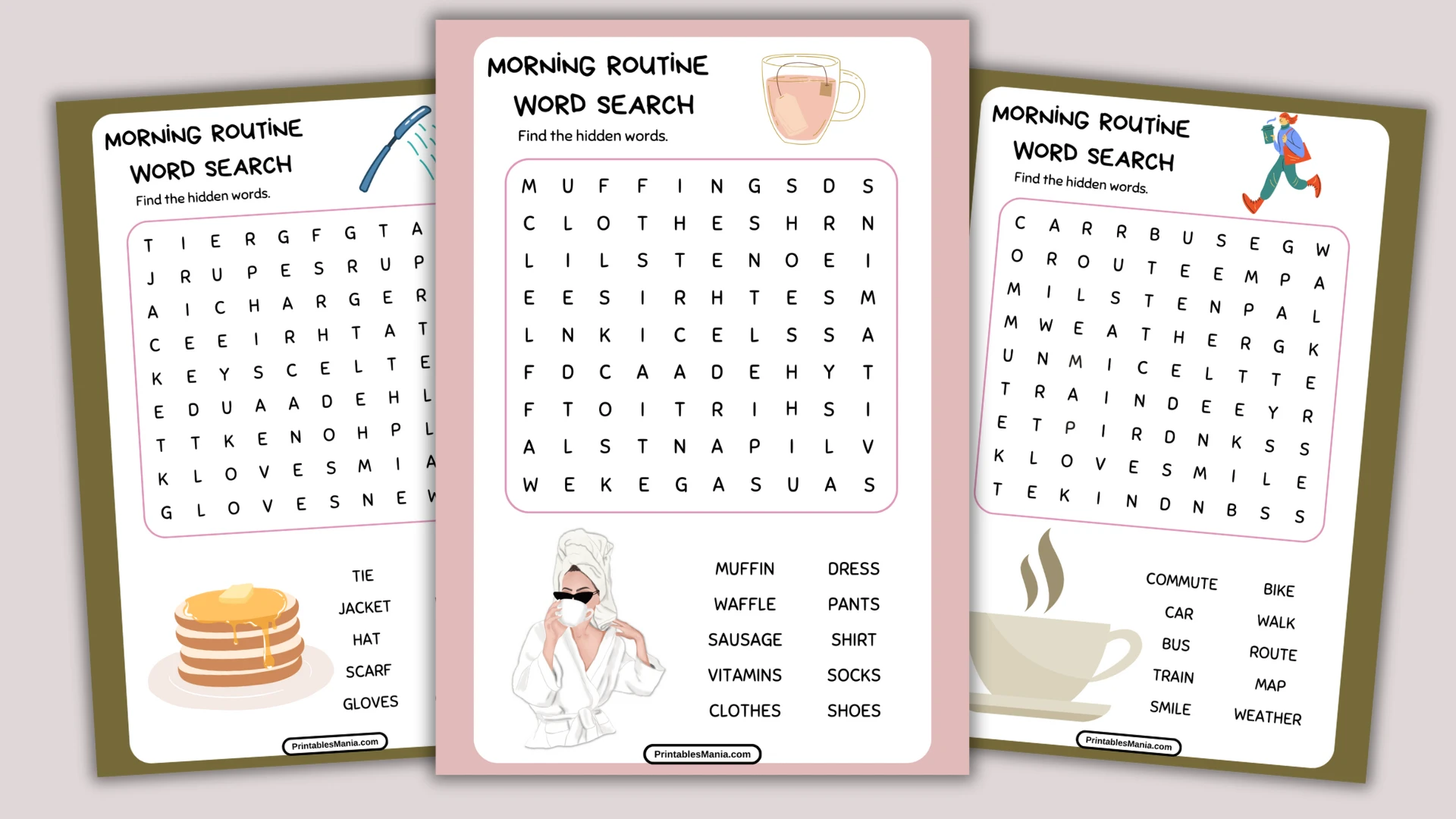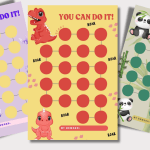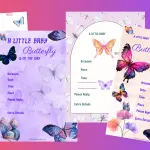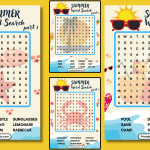Start your day with a fun and engaging activity that sharpens your mind and gets you ready for the day ahead! Our Morning Routine Word Search is the perfect way to kick off your morning, whether you’re enjoying a quiet breakfast or looking for a quick brain teaser before heading out.
Why Play Morning Routine Word Search?
- Brain Boost: Word searches are a great way to enhance your cognitive skills, improve your vocabulary, and keep your mind sharp.
- Stress Relief: Engaging in a relaxing activity like a word search can help reduce stress and set a positive tone for the day.
- Fun and Educational: Learn new words related to daily morning activities while having fun. It’s perfect for both kids and adults!
How to Play
- Download and Print: Click on the link to download your free Morning Routine Word Search printable. Print it out on standard letter-sized paper.
- Find the Words: Look for the words listed below the puzzle in the grid. Words can be found horizontally, vertically, diagonally, and even backwards.
- Circle or Highlight: Use a pen, pencil, or highlighter to mark the words as you find them.
- Challenge Yourself: Time yourself to see how quickly you can find all the words, or challenge a friend to see who can complete the puzzle first.
Perfect for All Ages
Our Morning Routine Word Search is designed to be enjoyable for everyone, from kids learning new vocabulary to adults looking for a fun distraction. It’s a wonderful way to bring a little extra joy and mental stimulation to your morning routine.
Download your Morning Routine Word Search now and start your day with a puzzle that gets your brain buzzing!
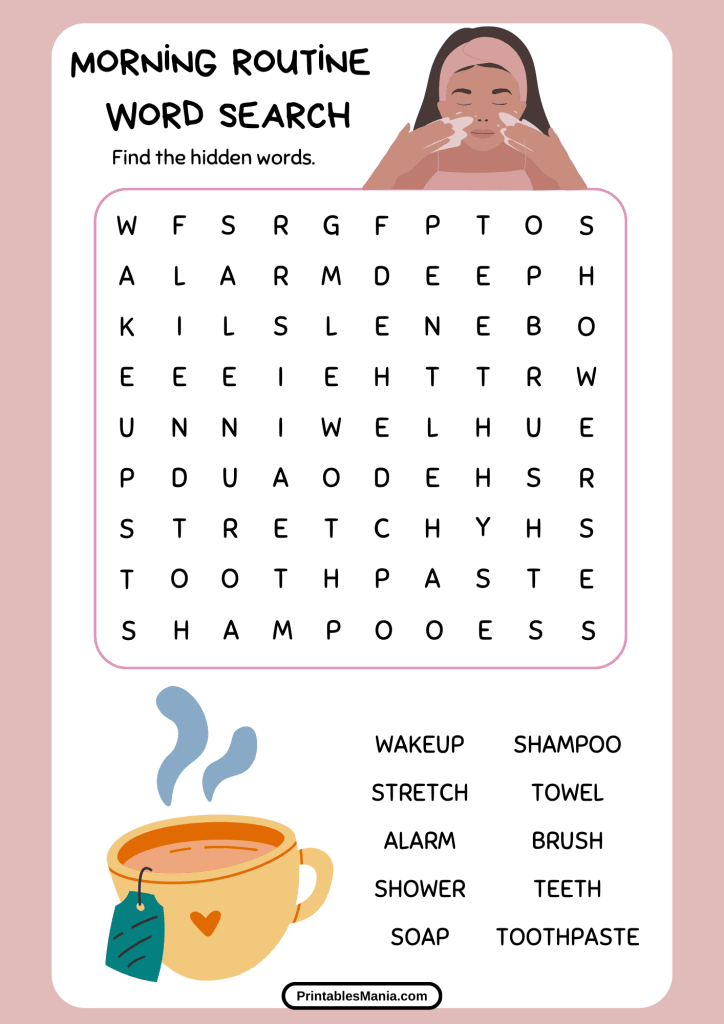
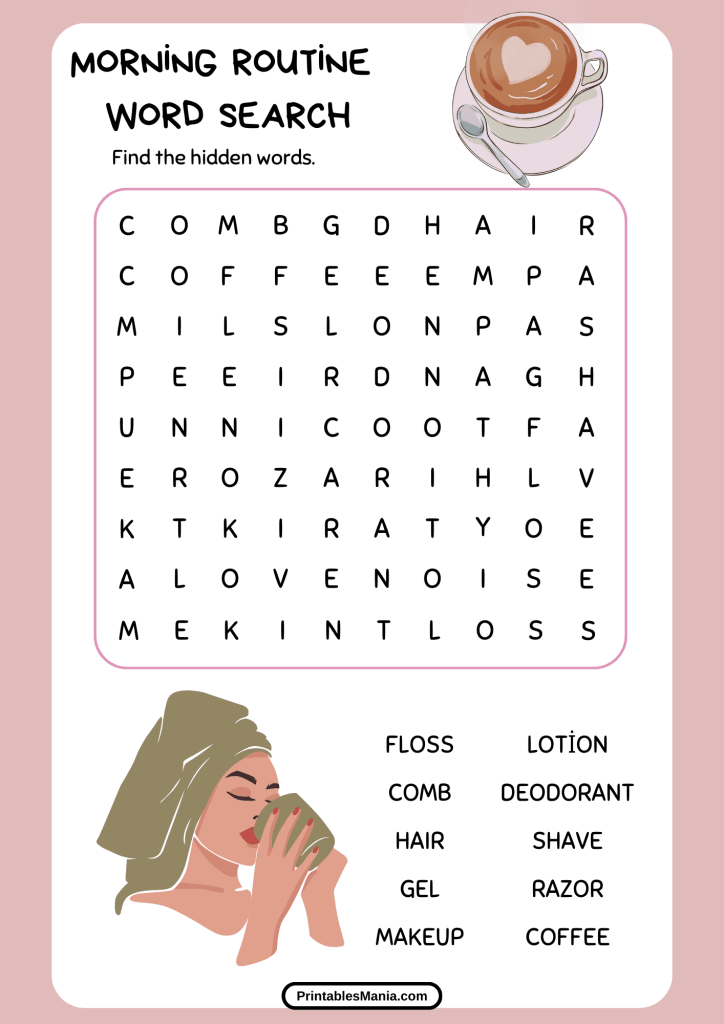
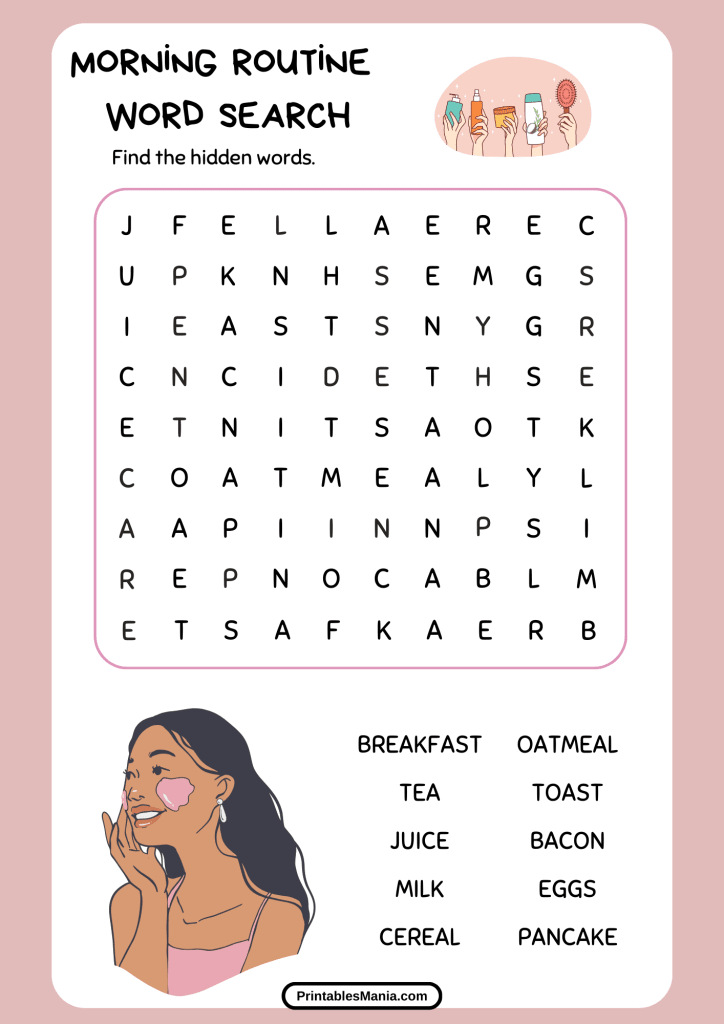
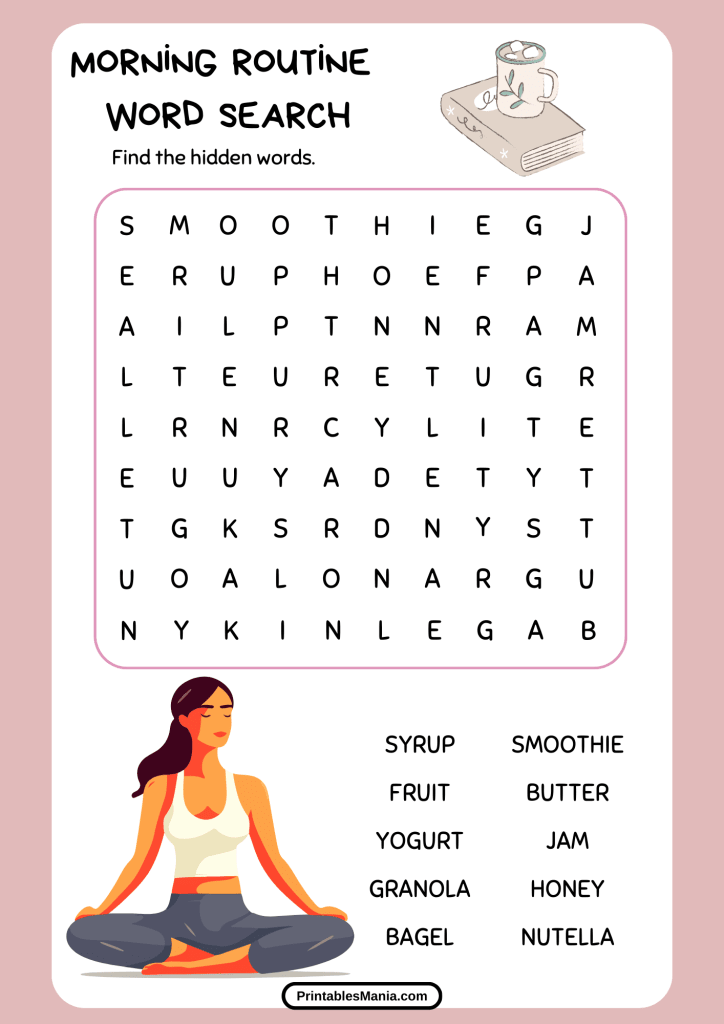
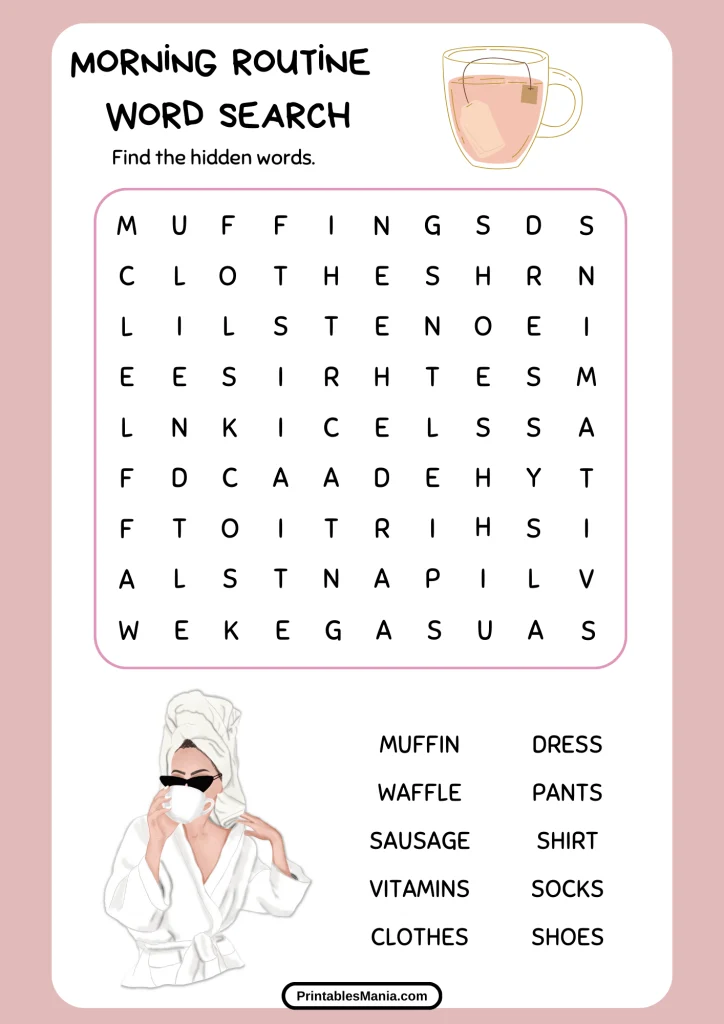
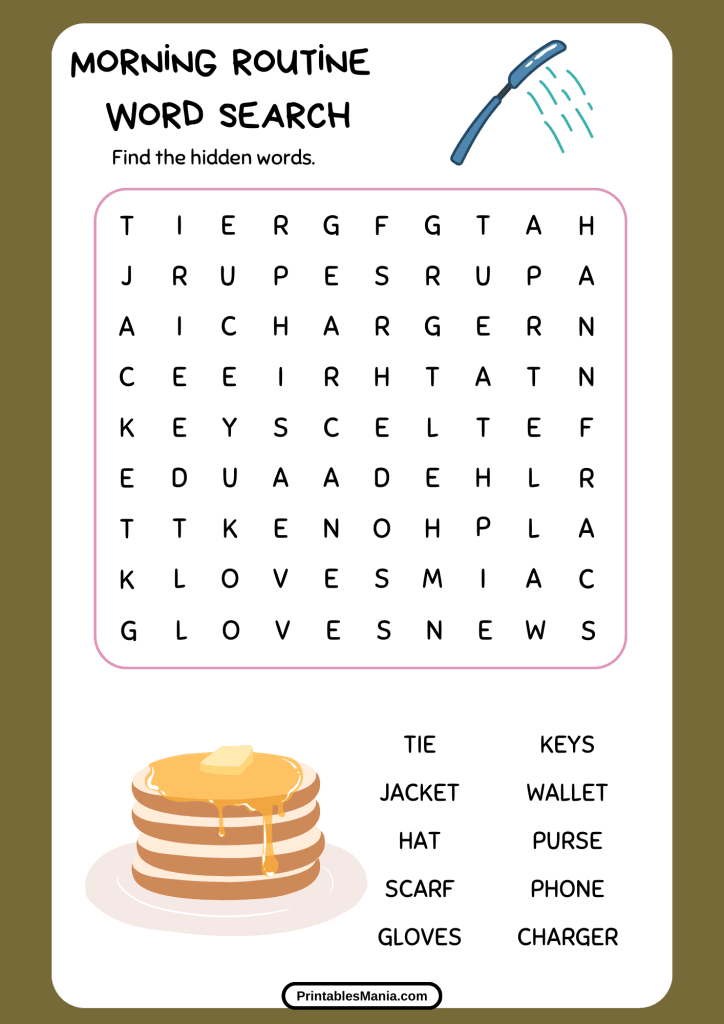
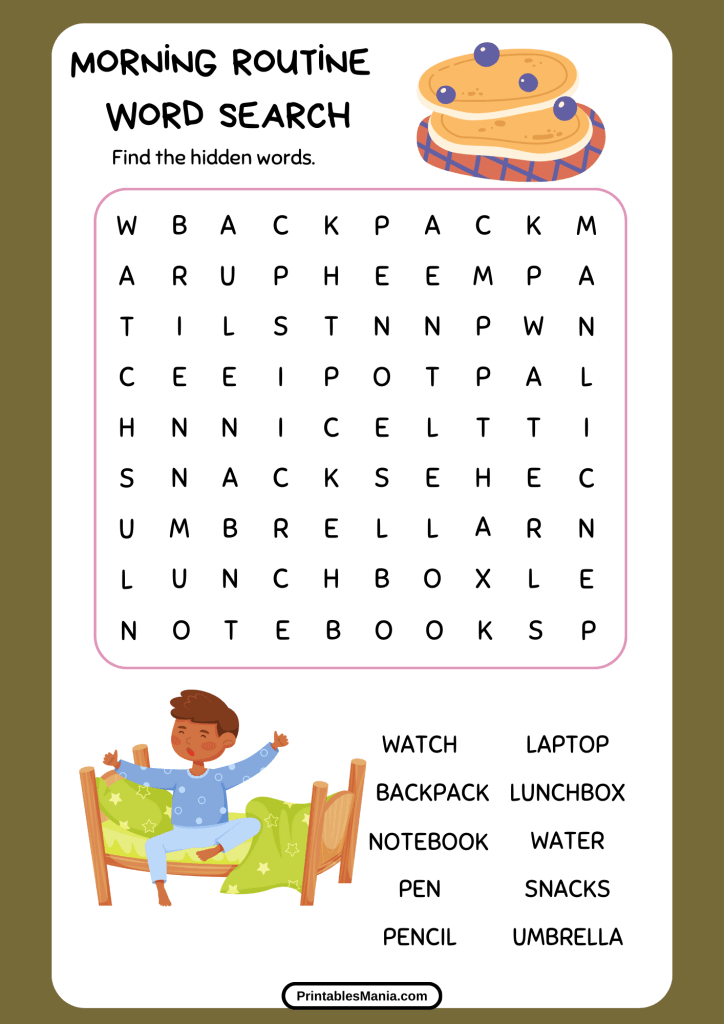
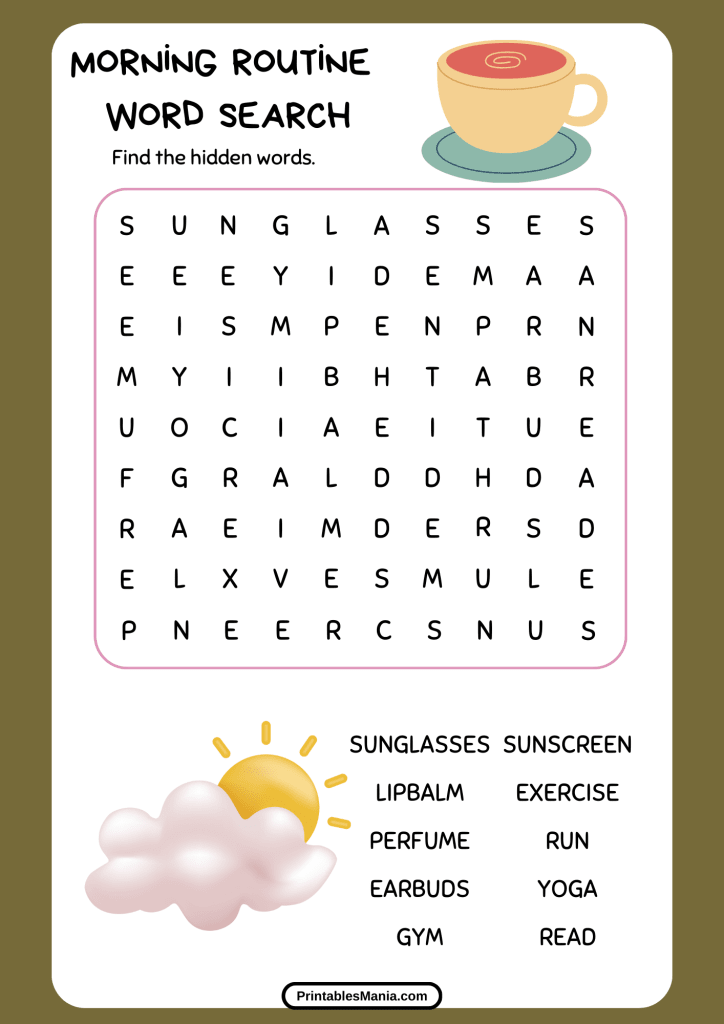
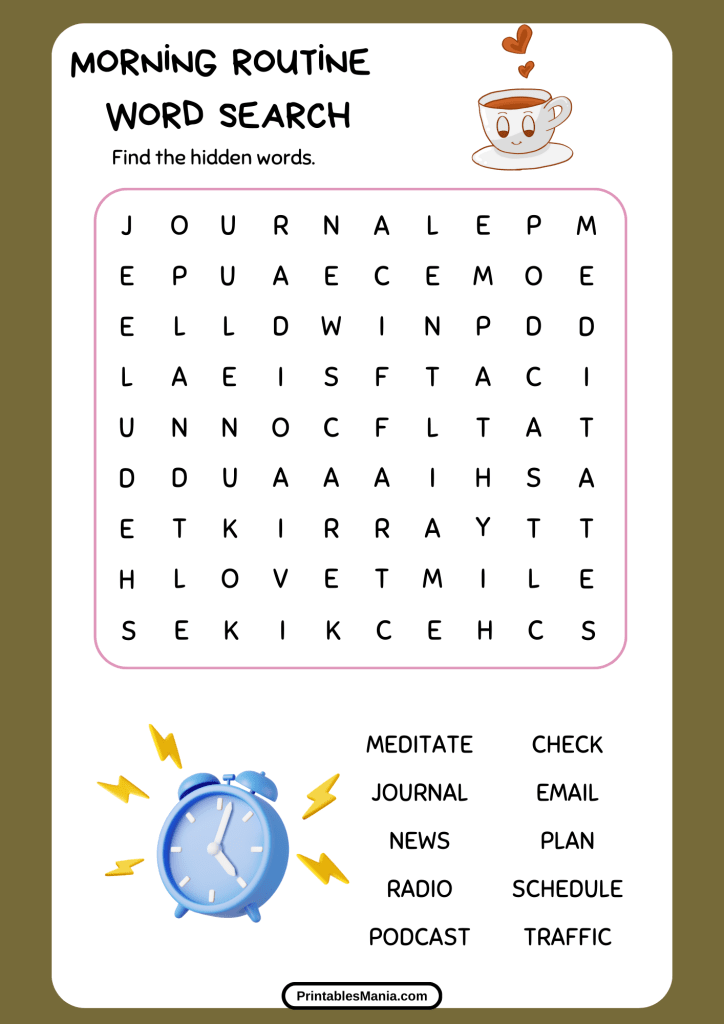
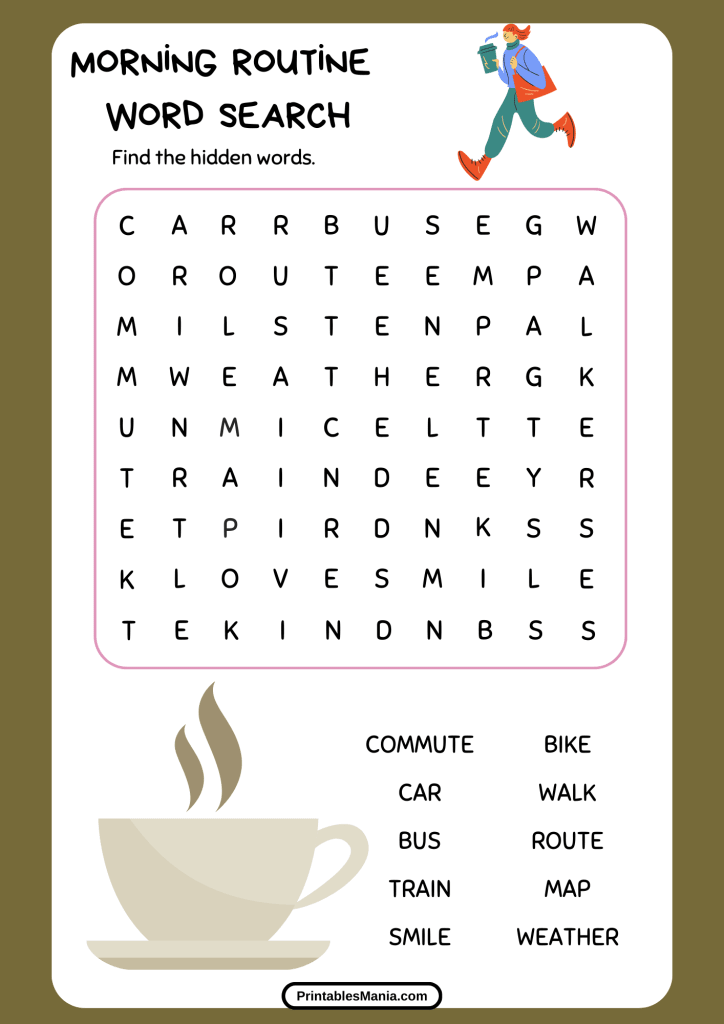
Benefits of Word Searches
Word searches are more than just a fun pastime; they offer a range of benefits for people of all ages. Here are some key advantages:
Cognitive Benefits
- Improved Focus: Word searches require sustained attention and concentration, which can help enhance your focus and attention span over time.
- Enhanced Vocabulary: As you search for words, you may encounter new terms, helping to expand your vocabulary and improve your language skills.
- Memory Boost: The process of searching for words exercises your brain, helping to strengthen memory and recall abilities. This can be especially beneficial for older adults looking to maintain cognitive health.
- Pattern Recognition: Finding words within a grid improves your ability to recognize patterns and sequences, which are crucial skills in problem-solving and logical thinking.
Mental Health Benefits
- Stress Reduction: Engaging in a relaxing activity like a word search can help reduce stress and anxiety. The focus required can provide a mental break from daily worries.
- Mindfulness: Focusing on a single task, such as finding words in a puzzle, can promote mindfulness. This helps you stay present and centered, contributing to a sense of calm and well-being.
- Sense of Achievement: Completing a word search gives a sense of accomplishment, which can boost your mood and self-esteem.
Social Benefits
- Family Bonding: Word searches can be a fun activity for families to do together, promoting bonding and quality time.
- Social Interaction: Solving word searches in a group setting, such as in classrooms or community centers, encourages social interaction and teamwork.
Tips for Solving Word Searches
To make the most out of your word search experience, here are some effective strategies and tips:
Look for Unusual Letters
Start by scanning the grid for less common letters, such as Q, X, Z, or J. These letters are often easier to spot and can lead you to the entire word.
Highlight as You Go
Use a highlighter or different colored pens to mark found words. This makes it easier to keep track of which words you have already found and adds a visual element to the puzzle.
Break It Down
Divide the grid into sections and search each section individually. This can make the puzzle feel more manageable and organized.
Work Backwards
Sometimes, finding words backwards (right to left or bottom to top) can be easier. This technique can help you spot words that you might miss when searching in the usual direction.
Focus on the First Letter
Identify the first letter of the word you’re looking for and scan the grid for that letter. Once you find it, check the surrounding letters to see if they match the rest of the word.
Use a Ruler or Finger
Place a ruler or your finger under each line as you scan the grid. This can help keep your place and ensure you don’t skip any lines or columns.
Work in Pairs
Pair up with a friend or family member to solve the word search together. This can make the activity more social and fun, and you might find words that the other person missed.
Stay Organized
Keep a list of the words you have already found. This prevents you from wasting time looking for words you’ve already located.
Take Breaks
If you’re stuck, take a short break and return to the puzzle with fresh eyes. Sometimes, a brief pause can make difficult words stand out more clearly.
By incorporating these tips into your word search strategy, you’ll find words more efficiently and enjoy the process even more.

